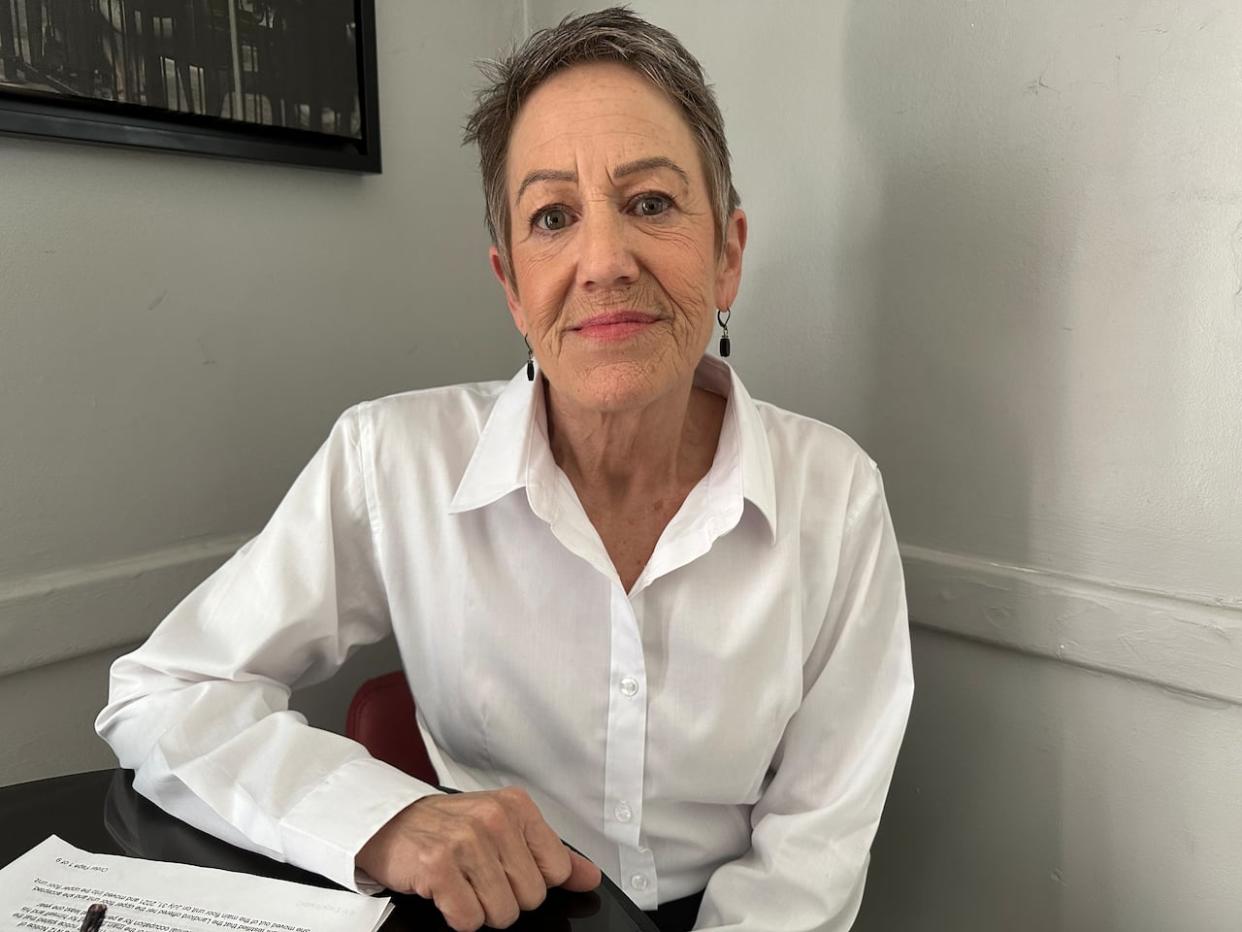This tenant won $16k from her landlord. She worries she may never get it

When Windsor, Ont., renter Lisa Lum found out that Ontario's Landlord and Tenant Board (LTB) sided in her favour and ordered her former landlord to pay her more than $16,000, she thought she could finally move on.
But as it turns out, the case is far from over.
According to a decision from the Landlord and Tenant Board (LTB), Lum was evicted twice in bad faith by her landlord. As a result, the LTB said that the landlord owes a $5,000 administrative fee to the LTB and another $16,680 to Lum.
The case took about two years to be heard. The order, issued on Feb. 7, says that the landlord had until Feb. 18 to pay, otherwise the fees would gain interest.
But Lum told CBC news that she has yet to receive any money.
And she's not the only one. Between Jan. 1 2020 to Sept. 30, 2023, the LTB issued 13 fines to landlords for bad faith evictions and as of November 2023 only a handful of landlords had paid.
Lum says when she reached out to the LTB about the late payment, they told her that they don't enforce their orders. If she wants to collect, Lum needs to file with a small claims court. And to serve her landlord, Lum needs their address — which she doesn't have.
"I didn't expect this at all," said Lum, adding that she didn't think it would be this challenging to collect the money she was awarded. Lum added that the process has left her feeling "defeated," "let down" and "angry."
"It's roadblocks, roadblocks everywhere."
Lum said that she feels that the process is unfair, because if the roles were reversed, the landlord would easily be able to find her based on all the information she had to give as a renter. She says to have a lengthy LTB process end and require further court action is unfair.
CBC News reached out to the landlord via email, but did not hear back.
The Attorney General's office told CBC News that they are working on a response to a request for comment.
Landlords who don't pay can't use LTB for future issues
Lum had been renting the main floor of a house on Lincoln Road for about eight years when her landlord sold the property in 2021.
Shortly after the sale, Lum says the new landlord notified her that he would need to move into the main floor unit. Lum was offered the upper floor and moved there.
A few months later, the landlord gave her another notice saying that he needed to move into the upper floor unit.
Weeks after Lum moved out of the house altogether, it was up for sale. Lum filed applications with the LTB in September 2022, which alleged that the landlord acted in bad faith. Her matter was heard in January this year.
Lum told CBC News that she has complex post-traumatic stress disorder, which has made the LTB process difficult to get through.
But she says she pushed through as she didn't think her landlord should get away with his actions.
"With this [LTB] judgment, this was to give me closure. And I don't have closure," she said.
"Every day that clicks by that I'm not getting any response [from the landlord] it just negatively impacts [me] and I get to a point in my healing and I'm feeling fantastic and then boom, it just sets me right back."

Cathy Corsetti is a licensed paralegal and president of Corsetti Paralegal Services. She told CBC News that she usually takes on cases with corporate landlords. (Corsetti Paralegal/Facebook )
Cathy Corsetti, a licensed paralegal and president of Corsetti Paralegal Services, took on Lum's case. While Corsetti was satisfied with the LTB decision, she knew that collection could be a challenge.
In order to get paid, Corsettti says she advised Lum to hire an investigator to find the landlord or get a collection agency on the case — though an investigator will cost money and collection agencies will take a portion of what they collect.
Corsetti said that she reached out to the landlord several times and proposed a payment plan, but hasn't heard back.
"It's unfortunate because a lot of people think they go to court and they win and they get their money, but in any court it's not like that — you get your judgment, you get a nice piece of paper that says they owe you the money, the problem is trying to collect it," she said.
Under the Residential Tenancies Act, landlords who don't pay fines, including bad faith evictions payments, cannot file any new applications with the Landlord and Tenant Board. That means they can't use the board to adjudicate any other disputes or issues until they pay up.
LTB backlogs add frustration to the process
Douglas Kwan, director of advocacy and legal services at the Advocacy Centre for Tenants Ontario (ACTO), says that many tenants who move forward with an LTB case often don't realize how lengthy the process can be because of a huge backlog of cases.
And on top of that, he said many don't know that if they do end up winning, it can be difficult to enforce the orders.
"Usually when a tenant is successful and endures such a long process, it's only natural to assume that they're going to obtain a reward right away," Kwan said, adding that that's often not the case.
And he said that going through small claims court is another process in itself.
"It's a stark choice, that [tenants] have. Either stay and fight or leave and [try] to afford someplace in the current market," he said.

Douglas Kwan is the director of advocacy and legal services at the Advocacy Centre for Tenants Ontario (ACTO). (CBC)
As for Lum's specific situation, Kwan says they often hear that landlords claim they or their family need to move into the unit and then it doesn't happen.
He says landlords particularly look to push out long-term tenants as they want to rent the unit at market value.
Kwan says one solution to this could be a change to provincial laws, which would allow rent control to apply to the vacant unit.
He says it's also important that tenants know when they get served an N12, or notice that their landlord wants possession of the unit, that their tenancy hasn't ended. Rather, he says it means that tenants can assert their rights at the LTB.
Kwan says that the LTB delays especially discourage tenants, who end up being "far less likely" to assert their rights when they hear that it can take up to two years for their LTB application to be heard.
In the spring of 2023, the office of Ontario's ombudsman published a report that described wait times at the Landlord and Tenant Board as "excruciating" and called for an overhaul of the board. The report noted a backlog of more than 38,000 cases.
According to data from the Landlord and Tenant Board, "own use" or N12 applications were up 77 per cent as of October 2023, based on a comparison of the first nine months of 2022 and 2023.
Tribunals Ontario executives have previously said that the LTB was working with the provincial government to increase staffing and adjudicators.
It also said that it has found ways to streamline the LTB process and created an online system for people to file applications and take part in hearings.

